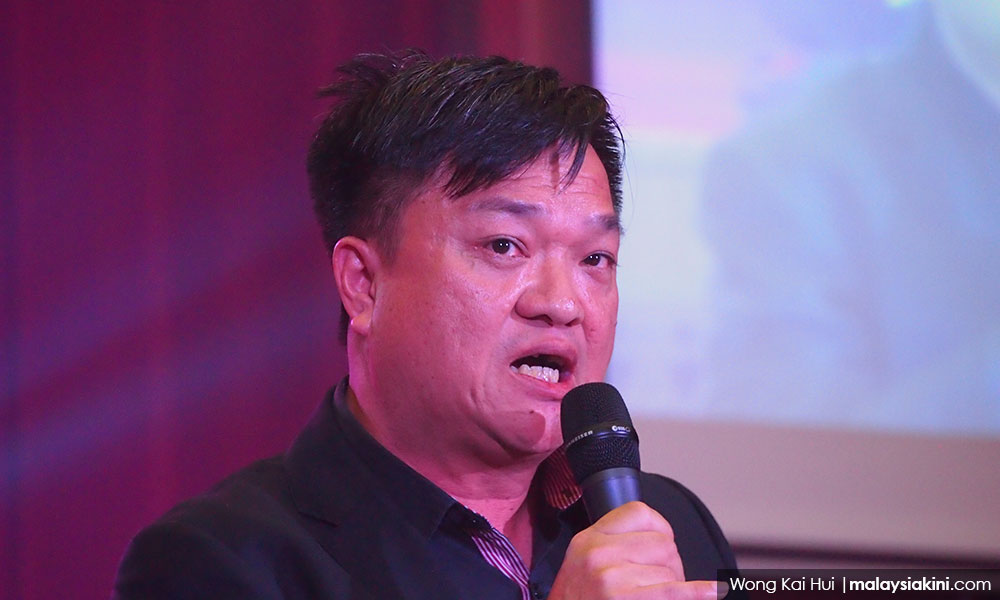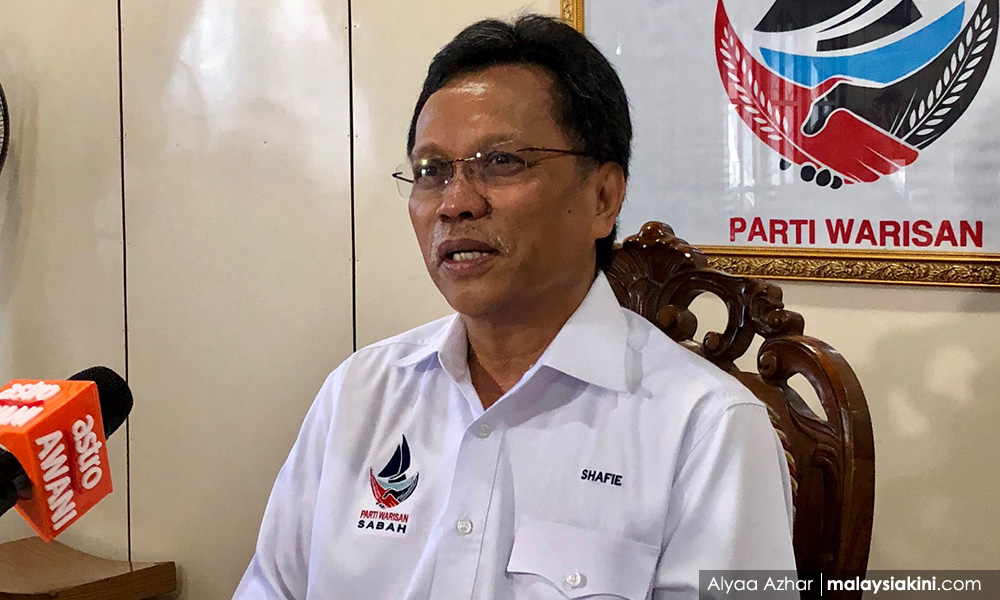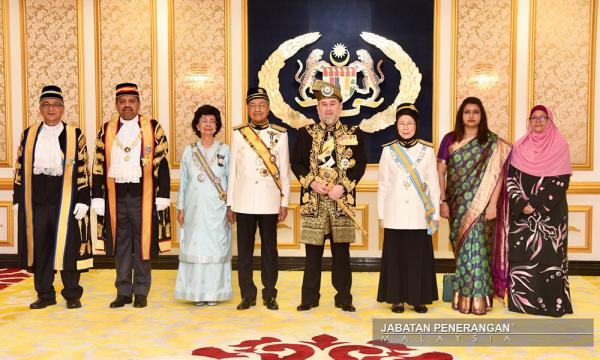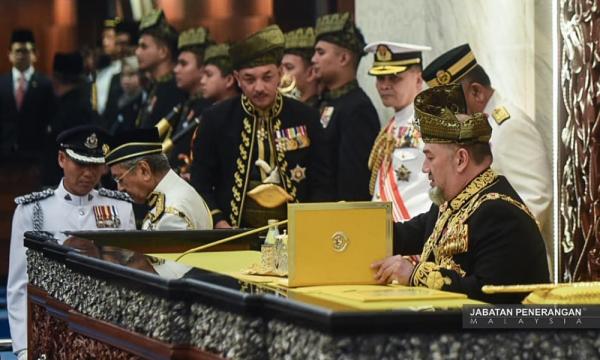COMMENT | MMN, according to Ooi Kok Hin, a research scholar at Waseda University, stands for Malay Muslim Nationalism. Quoting Wong Chin Huat, a political scientist cum colleague at The Penang Institute, Ooi argued that "MMN" will define the future general elections of Malaysia, beginning from the next one, the 15th, in 2023.
In MMN, Malays and Muslims and their nationalism will gel onto one template. As and when they do, other ethnic groups across the lay of the land in Malaysia will either inch towards MMN - out of fear for it - or keep a safe distance from it, again, out of fear, too.
This is where the above analytical logic of Ooi, and Wong, begins to break down. How? First and foremost, the belief that MMN can only trigger fear is nothing but a bogey or straw-man. If the political strategies and beliefs of Liew Chin Tong in the DAP are taken as a benchmark, DAP believes in a "Middle Malaysia" as much as Bersatu, Amanah or PKR do.
In the recent 2018 general election, for example, Chin Tong has repeatedly pointed out that DAP fielded "more Malay candidates under the age of 40" as opposed to Umno or PAS. Now, this is where it gets interesting - while DAP was willing to field more and more Malay candidates, it means MMN is not real. Rather, it is something which even DAP, a socialist centrist party, can co-opt into their own.
Secondly, no one knows how deeply DAP believes in the "Middle Malaysia". So far, Chin Tong appears to be the only party strategist who advocates it fervently. But Lim Guan Eng, now the finance minister, has affirmed that he sees himself as "a Malaysian first” not an ethnic Chinese or for that matter, a Malaysian Chinese.
When he said it, the Prime Minister of Malaysia Dr Mahathir Mohamed was there, as was Mohamad Sabu, the president of Amanah, and other stalwarts from PKR. All agreed the "New Malaysia" was all about Malaysia First.
Thirdly, while Ooi Kok Hin and many other Malaysian studies specialists such as Edmund Terence Gomez at Universiti Malaya tend to bemoan the existence of a slew of legislation, such as Act 153 that defends the racial and special privileges of the Malay rulers and the bumiputera, which extends to Sabah and Sarawak as well, the market seems to know that these systems of special rights and privileges do often exist, all but in name only.
Over the last nine months alone, since the historic May 9, 2018, general election, foreign direct investments (FDI) that have streamed into the country have reached a respectable RM41 billion as opposed to RM14 billion in the same corresponding period last year. This means the historic electoral win of May 9 ushered in a new found belief in the "New Malaysia" that the democratic coalition of four component parties can work.

If there was no faith in the coalition of four, plus its strategic alliance with Warisan in Sabah, why would the market respond so positively to the new Malaysia? Thus Ooi Kok Hin and Wong Chin Huat (photo, above), or anyone who agrees with MMN, are not reading the Malay or even Islamic psychology of the Muslims or bumiputera accurately, if at all.
This is why in this rebuttal, there is no need to even question Ooi Kok Hin's appropriation of the concept of "consociationalism".
Fourth, the title of Ooi Kok Hin's academic article is unfortunately misleading. In erecting MMN as the future epicentre of the 2023 election and other general elections of the sort, Ooi was not actually talking about the "end of ethnocentric elite rule in Malaysia", (the captioned quotation marks being the title of the article) but the beginning of MMN as the master narrative of the future elites and electoral participants of Malaysia.
At 222 parliamentary seats and 587 state seats, there is no doubt that some politicians across both sides of the aisle, whether from Pakatan Harapan or BN, will fall into the habit of using MMN as a ruse (it is worth reminding it is a ruse, thus a trick) to guide their electoral machinery. But come 2023, one can be sure that Bersatu alone will not campaign on MMN alone.
A jingoistic Umno-PAS alliance
If Bersatu had wanted to use MMN, it could have used it in the 2018 general election, when the stakes were supremely high, since any potential mistake would have meant Najib Abdul Razak using his new mandate in the 14th general election to squash all opposition elements in Bersatu and Harapan. If Ooi & Co believe so deeply in the spectre of MMN, potentially an indirect manifestation of latent Islamophobia, if only Ooi & Co themselves would care to admit it, they should have asked themselves, why didn't Mahathir use MMN throughout the campaign for the 14th general election?
Instead, Mahathir and every member in Harapan spoke against the corruption and kleptocracy of Najib, the erstwhile former prime minister of Malaysia, and even attacked the overt false and pseudo-Islamism of PAS. More stunningly, of course, Harapan won and defeated a grand coalition of 13 parties which made up the BN, not merely in Peninsular Malaysia but in Sabah too.
Truly, the 82 percent of Malaysian voters who turned up on May 9 were indeed concerned with issues like good governance, future financial meltdowns and the debt of Malaysia and, of course, the grand larceny of 1MDB and what Daim Zainuddin called many "mini-1MDBs".
Sixth, the Bloomberg Emerging Market Index has listed Malaysia as the number one emerging economy out of a field of more than 20, all within a spate of six months. Largely, this is due to the strong foreign reserves of the Bank Negara, at US$101.5 billion, which can supply imports for up to 7.7 months.
Seventh, where is the explanatory power of MMN in Sabah, a pivotal state in 2023, not least? The chief minister of Sabah is of Bajau descent. Yet Shafie Apdal was able to win the hearts and minds of Sabahans, including the Kadazans-Malays-Dayaks (KMD). If MMN did not rear its head in Sabah on May 9, then what did?

The answer is simple: it was a rehash of the PBS' 1984 slogan "Sabah for Sabahans” which Shafie Apdal (photo) and his colleague Darrel Leiking were not afraid to use nor invoke throughout the whole election campaign.
In fact, throughout the campaign, the concept of Sabah and Sabahans was sufficiently powerful that even Mahathir never had to set foot in Sabah to campaign on behalf of Warisan.
All said, MMN can exist and it is existing in the form of the jingoistic PAS-Umno alliance. It may even exist in the form of a Perkasa rally. Come Saturday, even if one million PAS, Perkasa and Umno members show up for the anti-International Convention on the Elimination of Racial Discrimination (Icerd) rally in Kuala Lumpur, the theoretical currency and academic call of MMN would still be missing. Why?
Simple. These are party members, some of whom may have been paid to attend the event. But these are not the majority of Malaysians who voted overwhelmingly to reject the corruption of BN and Umno. In fact, as the PKR campaign of Rafizi Ramli showed, it was enough to speak of the importance of returning to the spirit of the “reformasi” of 1998.
By highlighting the importance of Anwar Ibrahim as the democratic icon of Malaysia, and the future prime minister of Malaysia to succeed Mahathir, Rafizi's own internal PKR campaign was enough to pull within a whisker of a few thousand votes of defeating the incumbent deputy president of PKR, Azmin Ali who is concurrently the minister of economic affairs in the federal government.
The spirit of reformasi, in other words, is alive and kicking in PKR and it is once again an outgrowth and manifestation of the mood of May 9, when nary anyone from Harapan used MMN as the opening gambit of their respective campaigns.
Phar Kim Beng, a former visiting scholar at Waseda University, Japan, may have been the first to understand the inner psychology of the Malay tsunami by pointing out in the pages of the South China Morning Post in Hong Kong in March 2017 that "crises like Felda" or other scandals like Tabung Haji were far more important to the Malay and Muslim voters, not MMN.
Ooi & Co used MMN as an optic to predict future stability of the grand coalition of Harapan. But the lenses are driven by inchoate fear. It must be stated that one should not show such fear of the MMN. One has to be more focused on the issues of good and bad governance which formed the crucible of a nationwide reaction against the grand corruption of Umno and PAS.
RAIS HUSSIN is a supreme council member of Bersatu. He also heads its policy and strategy bureau.
The views expressed here are those of the author/contributor and do not necessarily represent the views of Malaysiakini.



